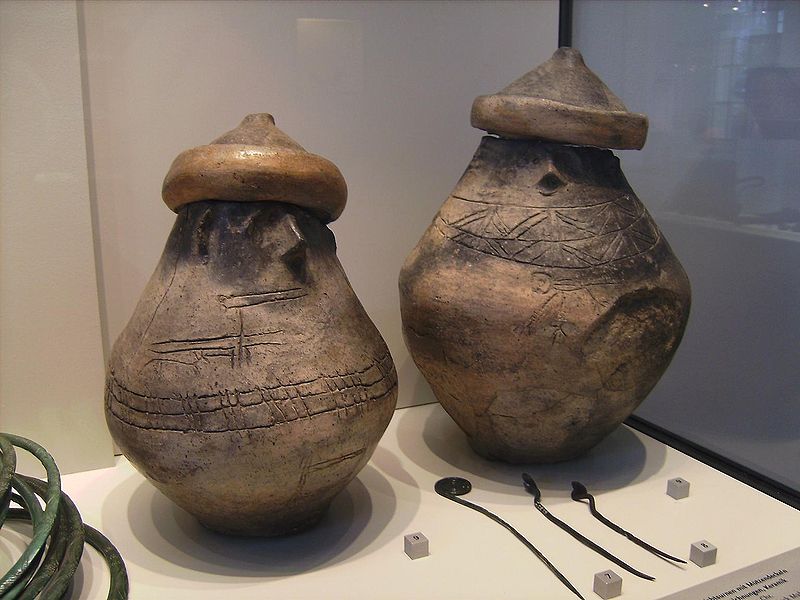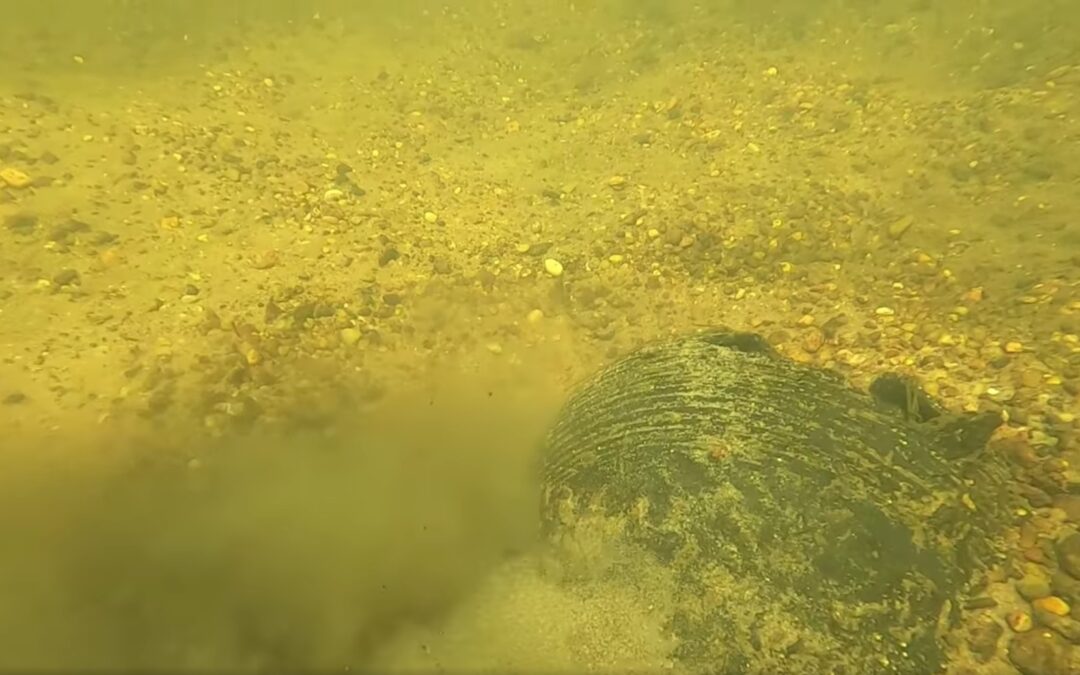Divers in a river in northern Poland have discovered ancient Pomeranian culture face urns dating back three thousand years, along with further finds buried there during various periods in history.
The first discovery – a clay disc – was found by volunteer lifeguards carrying out diving training in the Gwda river, a 140 kilometre tributary of the Noteć river in western Poland.
According to a report by TVN24, the divers showed the find to their colleague Jarosław Rola, who is also an archaeologist at the District Museum in Piła, who recognised it as the lid of a burial urn from Pomeranian culture.
Such urns – which depict faces with eyes and noses as well as often features such as earrings – are a characteristic feature of the culture that was present in the territory of modern-day Poland between the 7th and 3rd centuries BC. They were used to bury the ashes of the dead.

Example of two Pomeranian culture face urns in Museum für Vor- und Frühgeschichte, Berlin (Source: Lillyundfreya/Wikimedia commons under CC BY-SA 3.0)
The divers soon made further discoveries, including a handmade clay vessel from the end of the Bronze Age dating back almost three thousand years, a cup estimated to be two thousand years old, and a jug from the late medieval or early modern period.
“The meandering river changed its course over centuries, before finally washing up the ancient burial ground,” Rola, the archaeologist, told TVN24. “I knew it would not just be one lid, and that we had to begin a systematic search.”
The vessels found in the river are likely to be from this place, rather than having been carried downstream, he explained. This, according to Rola, provides further evidence of the existence of the Pomeranian culture there.
The archaeologist added that the rapid river current made the search perilous, but was also the reason that the discoveries were possible. “If we go underwater one day, we might find nothing. But if we return a week or two later, the current might reveal objects that we didn’t see before.”
“You have to be extremely careful of sunken trees, which are a death trap,” added Rola. “A moment of inattention and you can end up as a fossil pressed into the riverbed.”
This is not the first or last archaeological discovery to be made in the Gwda river, which was likely used by various peoples throughout history to bury their dead, reports TVN24.
Objects lost by medieval rafters or fishermen, including an attractive steel-grey jug, have also been found there in recent times.
Main image credit: Facebook/Muzeum Okręgowe im. Stanisława Staszica w Pile

Ben Koschalka is a translator, lecturer, and senior editor at Notes from Poland. Originally from Britain, he has lived in Kraków since 2005.




















